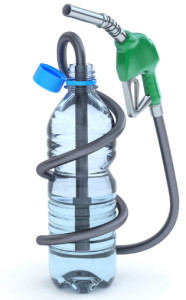Washington introduced draft rule for clean fuels
February 13, 2015Clean fuels are set to gain more support in Washington
Washington has released a new draft rule that has established a new clean fuel standard in the state. The new rule is meant to add more momentum to the state’s goal of reducing greenhouse gas emissions. In order to reduce emissions, the state has been promoting clean vehicles and the use of renewable energy. Because transportation accounts for the majority of emissions produced in the state, the new rule is focused on promoting clean fuels.
New standard is based off of similar requirements that had been launched in California
The rule has been modeled after similar fuel standards in California, which require fuel suppliers to provide a certain percentage of clean fuel. Hydrogen fuel is included in this standard, as fuel cell vehicles are beginning to come to the United States. By promoting the use of clean fuels, Washington officials believe that they will be able to meet their goal of reducing emissions in the transportation sector. The standard aims to direct fuel suppliers to reduce their greenhouse gas emissions by 10% by 2020, as well.
Report highlights the feasibility of clean fuels standard in Washington
 Washington’s Office of Financial Management has prepared a report regarding the feasibility, benefits, and job implications concerning the use of clean fuels. The report highlights four scenarios, the first of which has to do with the adoption of hydrogen fuel cell vehicles and conventional electric vehicles. According to this scenario, the clean fuels standard would account for a significant increase in the market share of clean vehicles. The report suggests that hydrogen fuel vehicles and those that use batteries would account for 50% of the transportation market due to the standards introduced in Washington.
Washington’s Office of Financial Management has prepared a report regarding the feasibility, benefits, and job implications concerning the use of clean fuels. The report highlights four scenarios, the first of which has to do with the adoption of hydrogen fuel cell vehicles and conventional electric vehicles. According to this scenario, the clean fuels standard would account for a significant increase in the market share of clean vehicles. The report suggests that hydrogen fuel vehicles and those that use batteries would account for 50% of the transportation market due to the standards introduced in Washington.
Even without Washington’s initiative, fuel economy will improve by 13%
Each scenario outlined in the report represents different levels of fuel usage. Without the state’s new fuel standard being considered, fuel economy is expected to improve by 13% due to mandates from the federal government. The government has been supporting clean transportation for some time as a way to reduce emissions that are produced throughout the country.

 With over 15 years of reporting hydrogen news, we are your premier source for the latest updates and insights in hydrogen and renewable energy.
With over 15 years of reporting hydrogen news, we are your premier source for the latest updates and insights in hydrogen and renewable energy.